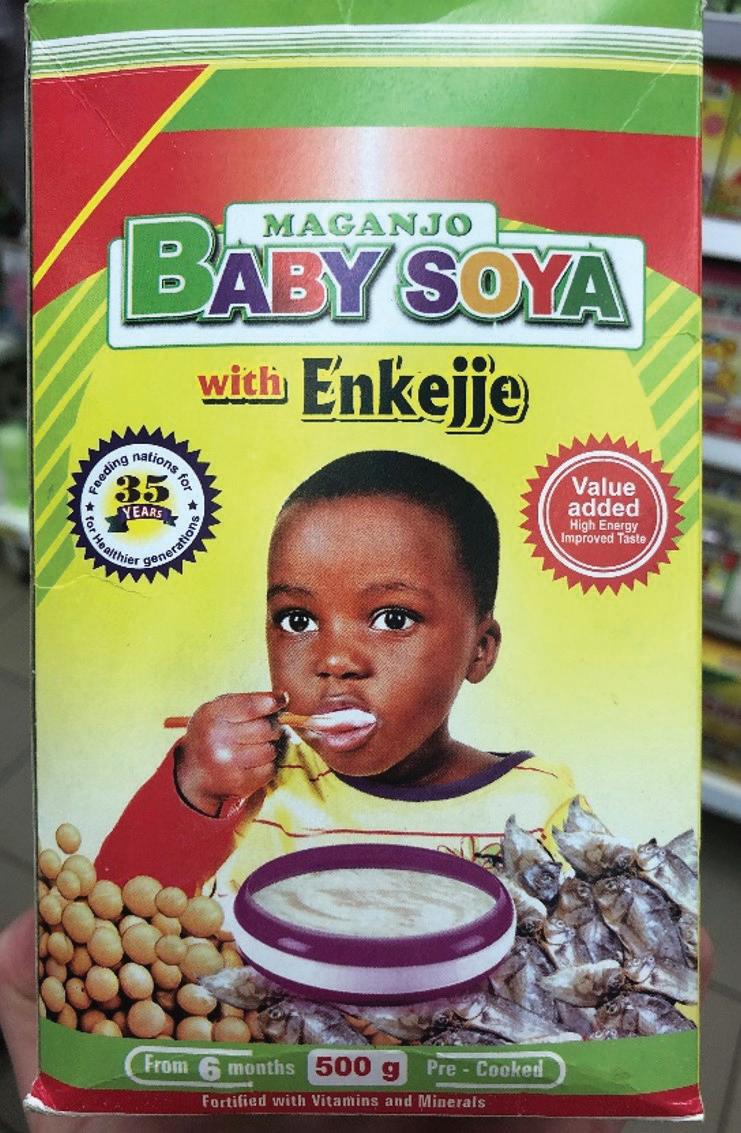
5 minute read
Soy for Human Nutrition
Soy for Human Nutrition Soy 360: A Network Response to Processor Needs
Many agro-processors like Maganjo Grain Millers in Uganda produce soy-fortified weaning foods. SIL supports these critical value chain players by linking them to a network of industry experts to support their goals of quality, efficiency, and market competition. CHALLENGE: Competitively viable agro-processors serve as critical nodes within the soybean value chain. However, processors often operate in isolation and lack access to the necessary technical expertise, support, mentorship, and guidance to improve their product offerings and expand their use and procurement of soybean. Agroprocessors need and ask for technical guidance, information, and networking opportunities to improve their production of nutritious foods and feeds at scale.
Advertisement
SOLUTION: SIL not only provides the technical support needed by soybean processors and food manufacturers, but complements this knowledge with a matched industry network and connections program. Agroprocessors producing cereals, snacks, pet foods, edible oil, and meal, as well as food scientists, engineers, and nutrition experts are now linked through a virtual platform called Soy 360. The platform was launched in collaboration with the American Oil Chemists’ Society (AOCS), the Institute of Food Technologists (IFT), the International Institute of Tropical Agriculture (IITA), Makerere University, and the National Agricultural Research Organization (NARO), and brings together members from 23 countries to share the latest innovative technologies and strategies for optimal agro-processing. KEY IMPACTS
SIL, in partnership with CNFA’s Farmerto-Farmer program and AOCS, has created a unique program to provide mid-to-large scale agro-processors with technical assistance. CNFA is a leader in coordinating the delivery of short-term technical assistance. AOCS is a leader in soybean processing and food manufacturing technology. Together, with SIL’s network of soybean processors and food manufacturers, expertise is deployed in the areas of: • New product development • Processing innovations • Equipment selection and procurement • Quality control and benchmarking to improve efficiency • Plant upgrades • Value-added processes
Explicitly, the consortium works together to recruit seasoned professionals in oilseed processing and matches them with agroprocessors in Africa. This newly formed network is critical to ensuring African processors have the necessary skills, training, equipment, infrastructure, and benchmarking knowledge to continually expand the demand for their country’s soybean crop.
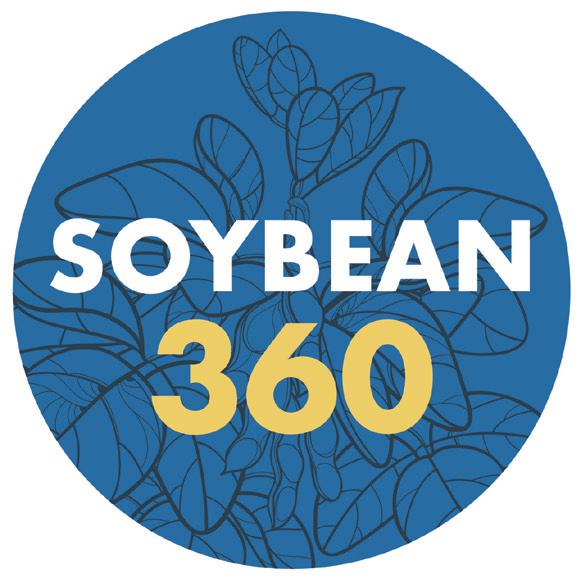
The Soy 360 platform links African agro-processors like Sunseed Oil Ltd. based in Malawi (pictured at right) with technical experts in soy processing to achieve efficient and profitable production of nutritious foods.
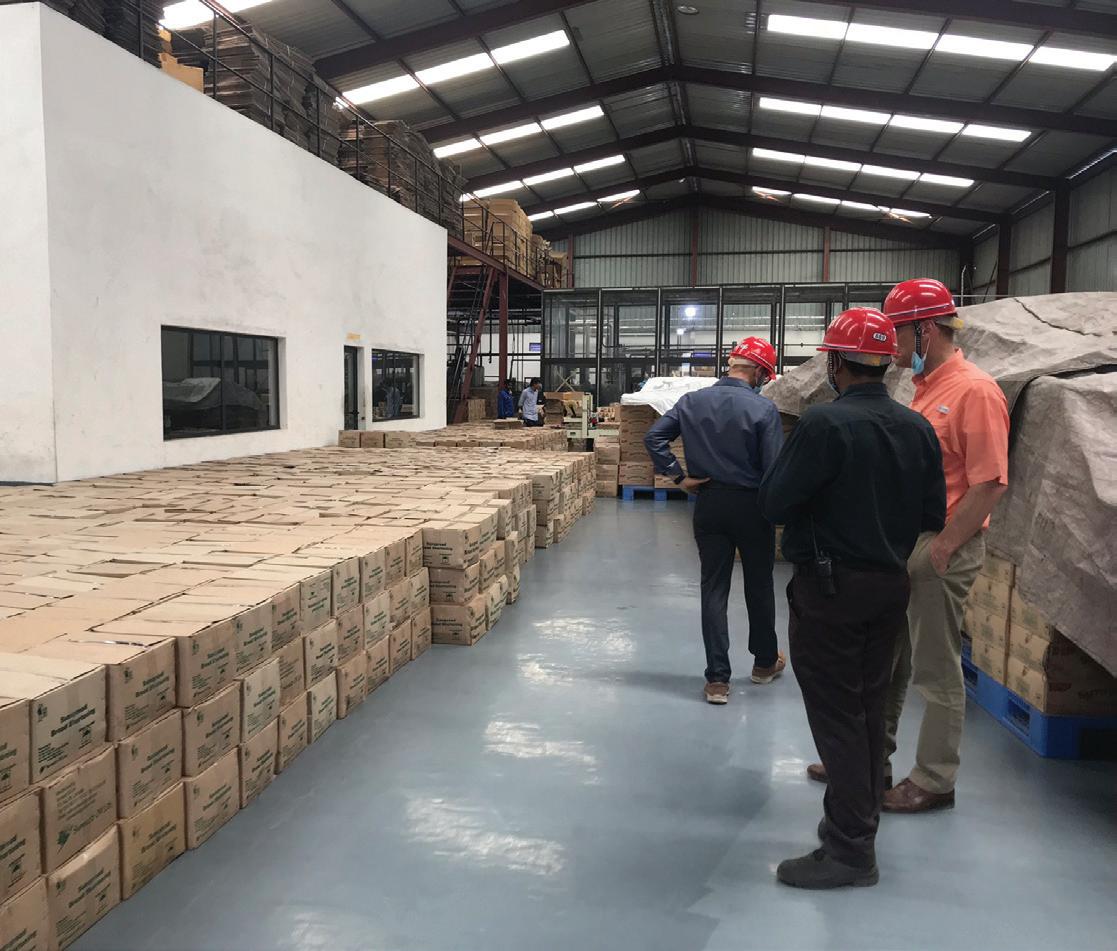
Women’s Entrepreneurship Improves Community Nutrition
Ethel Reuben is Soy Kit operator based in the Michinji District of Malawi. She keeps a monthly log of the production, sales, expenses, and resulting profit for her Soy Kit production system. SIL’s analysis of operator data shows the Soy Kit to be a profitable and appropriatescale technology for household entrepreneurs.
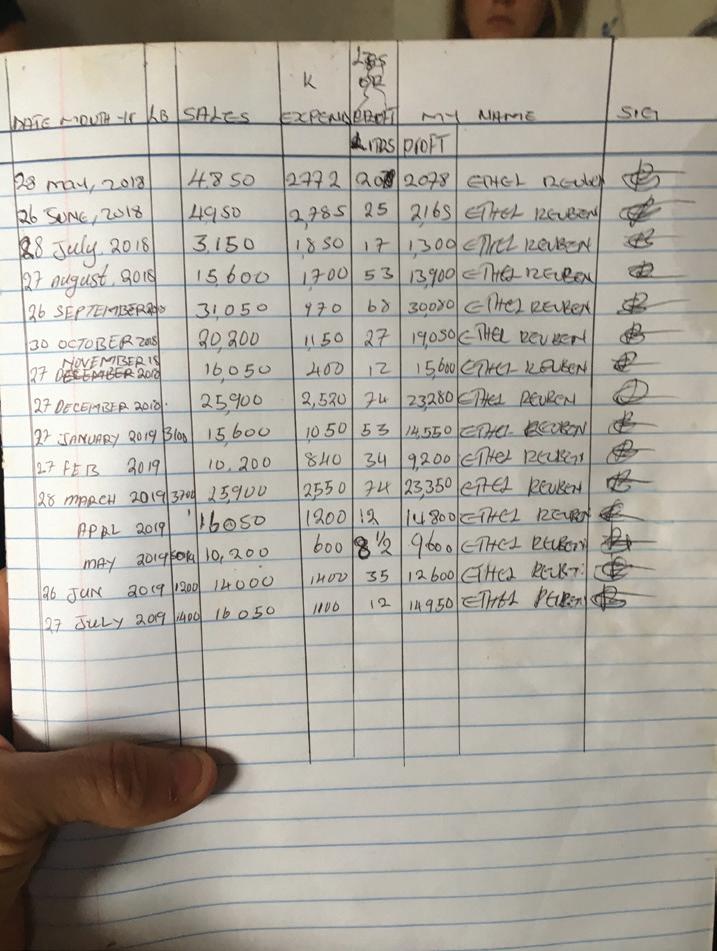
SIL research found that Soy Kits are an appropriate technology for household entrepreneurs, enabling female operators flexibility and leveraging their tacit knowledge of local demand. CHALLENGE: There has been strong interest in value-added technologies that are appropriate for household level entrepreneurs. Moreover, women who operate food enterprises can leverage athome production technologies to support family nutrition, generate income, and provide consumers with nutritious foods. However, many technologies are inappropriate for household entrepreneurs due to high capital investment demands, large production scale, or excessive technical know-how.
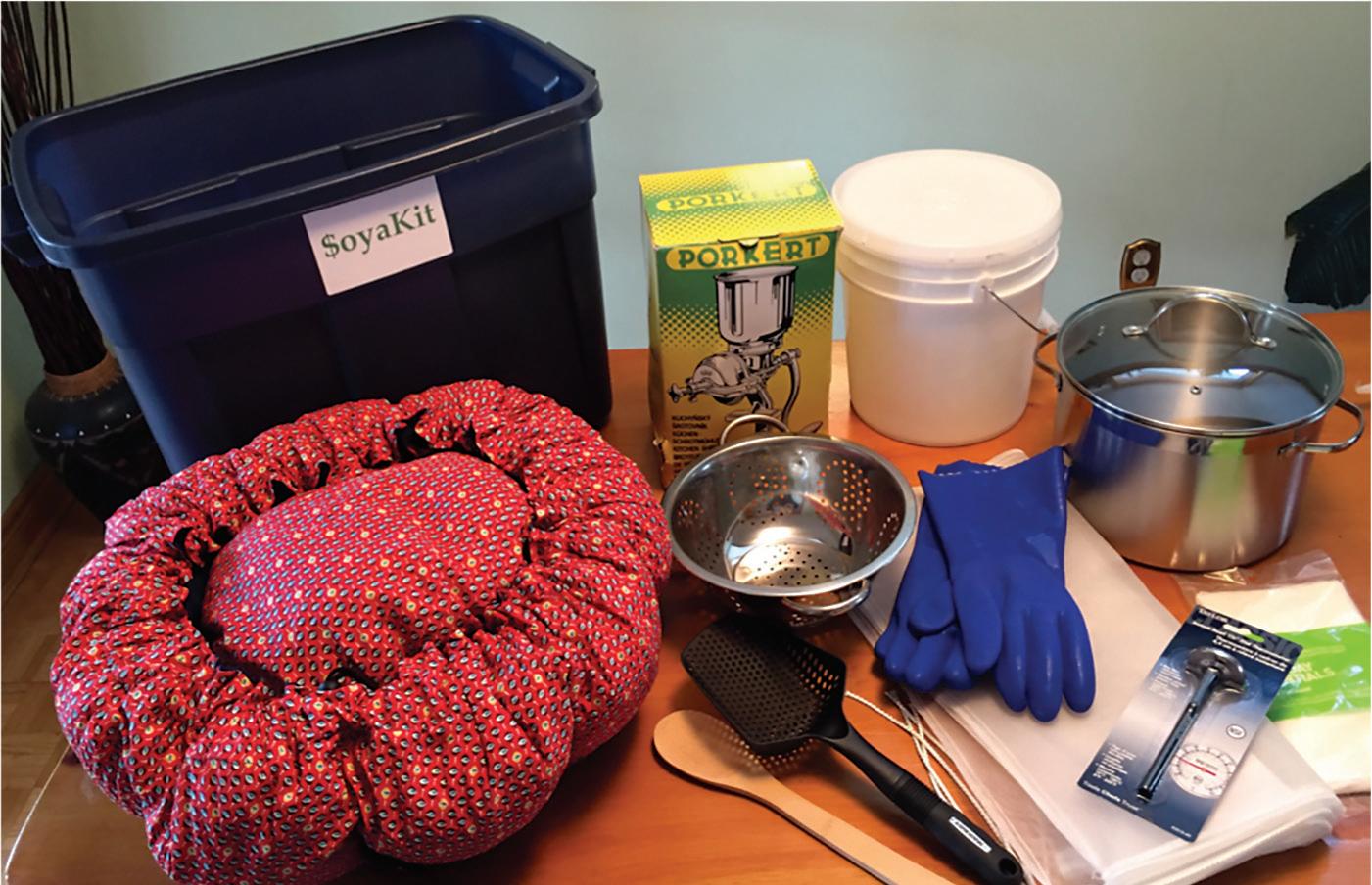
SOLUTION: The Soy Kit is a new technology launched in Sub-Saharan Africa that focuses on improving household nutrition and supporting female entrepreneurship. The soy kit business model uses an appropriate technology to produce soy milk that leverages components often found in the household that are locally available and familiar to women. The kit was developed by the non-governmental organization (NGO) Malnutrition Matters and requires an investment of between $80$200, depending on if the kit components are sourced locally or imported. SIL collaborated with the Malawi Feed the Future Agriculture Diversification Activity to provide evidence on the kit’s profitability, return on investment, and operational performance as well as the Soy Kit’s overall appropriateness as a technology for the developing world.
KEY IMPACTS • Payback period for the Soy Kits from cash flow is < 6 months. • Annual return on capital is 163% when using the domestically sourced Soy Kit valued at $80 USD. • Soy Kit batches yield 3.5L of soymilk and 1kg of okara (a high-protein, high-fiber byproduct) per 600g of soybean. • Each Soy Kit batch takes 30 minutes, thus is manageable for women with many demands on their time and allows entrepreneurs to produce milk when they have time and see demand opportunity. • Entrepreneurs can produce soy milk, yogurt, cheese, and tofu with the Soy Kit, and can use the okara in baking, or in raw form as a porridge ingredient or in animal feed. • Soy Kits are not mechanical and utilize equipment common to kitchens, making maintenance and repairs easy. • All raw materials for the Soy Kit are storable and shelf-stable, so entrepreneurs lose little in storage and allowing for flexible production schedules. • Entrepreneurs can use the Soy Kit to grind and cook other raw foods. • Soy milk is low-cost and healthy product, effectively competing against traditionally consumed beverages and capable of benefitting vulnerable populations. • Capital and other fixed costs for the Soy Kit match the small-scale and episodic flow of a household enterprise where key inputs such as labor, fuel, soybean, and sugar can be intermittently available. • Results show that the Soy Kit is an appropriate technology for female entrepreneurs based on the Soy Kit’s small scale, low cost, flexibility, and profit potential.
Results from data collected among 224 household-led women entrepreneurs in Malawi over an 18-month period from 2018-2019 and published in the Food and Nutrition Bulletin. 21











